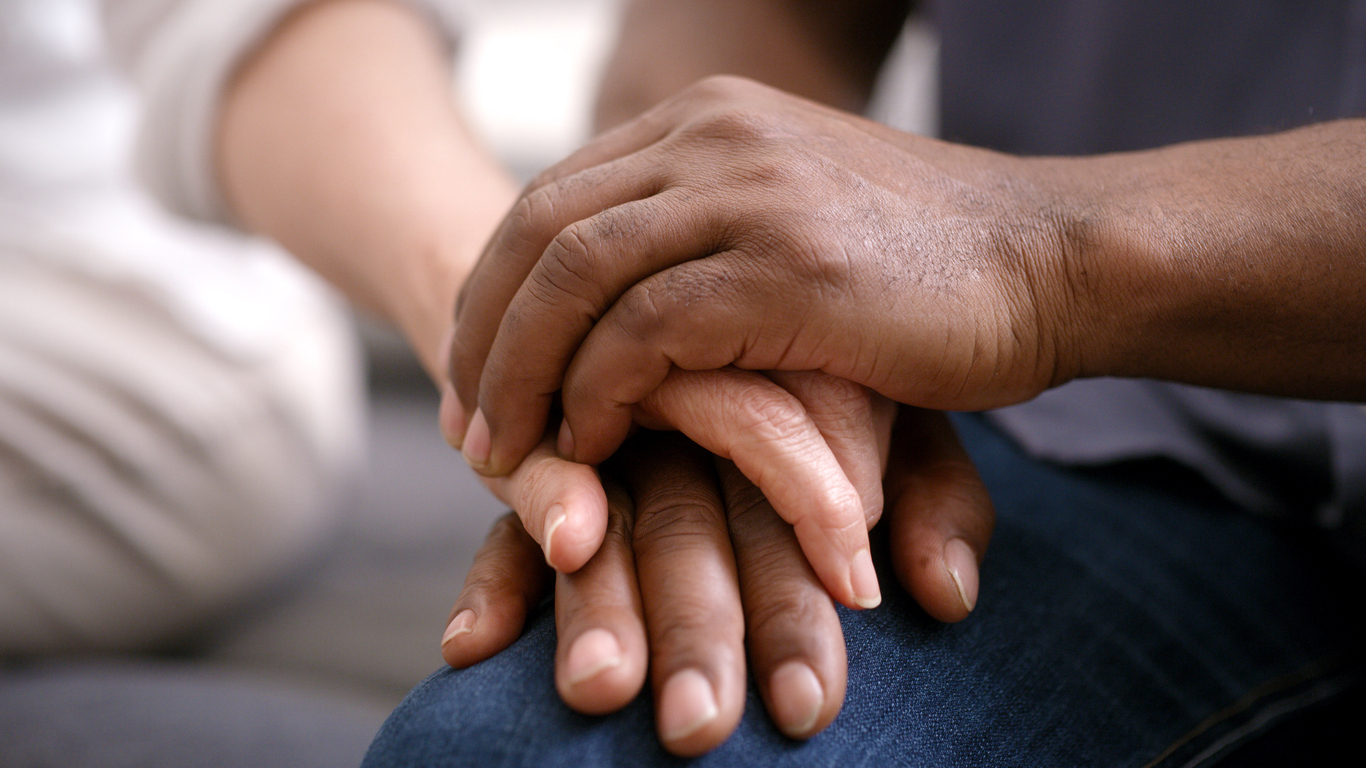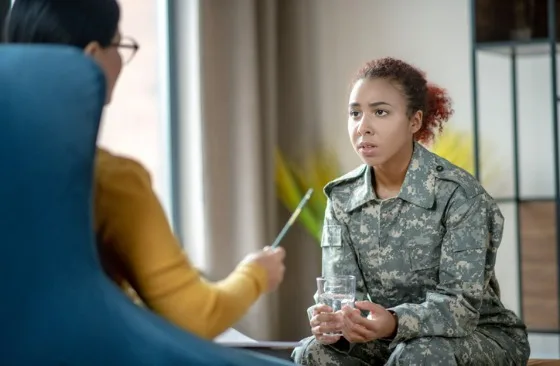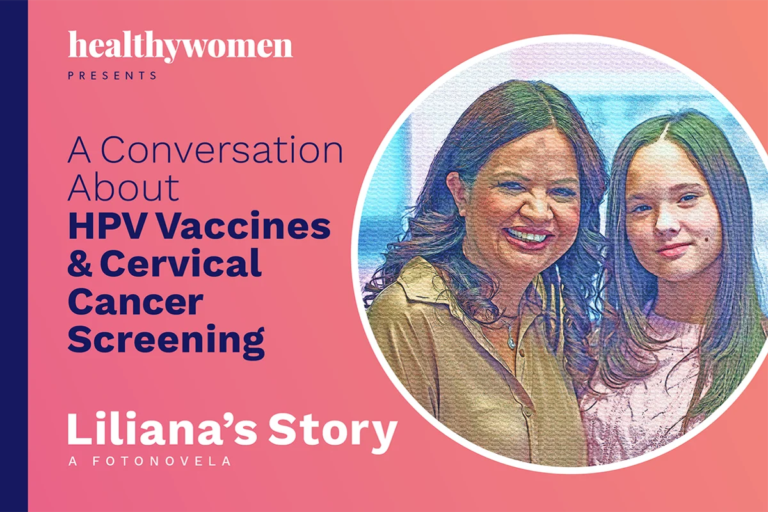If a veteran in your life has been diagnosed with cancer or another serious medical condition, you may find yourself in the role of a caregiver. This can be a challenging situation for both you and your veteran, but there are ways to find balance and thrive in this role.
We interviewed Tiffany Lange, PsyD, to learn about resources for caregivers of veterans. She’s a licensed clinical psychologist who has experience counseling veterans and their caregivers to help them through difficult medical situations.
What is the role of a veteran caregiver during a medical diagnosis like cancer?
Often, loved ones serve in an unofficial (unpaid) capacity to support a veteran with cancer. They may be an advocate in medical decisions. Caregiving can also involve a range of activities, including emotional support, logistical support — like taking them to medical appointments — or physical support, such as daily feeding and hygiene tasks. Lange estimated almost 25% of U.S. adults have provided care to a family member or friend.
However, she said the VA uses the term “caregiver” as an official title and a designation that comes with responsibilities and possible benefits. “The [VA] Caregiver Support Program starts with the veteran and their healthcare situation or condition, if it is acute enough for a caregiver to be designated. A caregiver is there to assist with the treatment plan, the quality of life and the holistic aspect of healthcare.”
What must a caregiver know during their veteran’s cancer diagnosis?
When a veteran receives a cancer diagnosis, there is an overwhelming amount of information for a caregiver to process. Caregivers are more likely to thrive in their role if they create their own strategy for navigating systems like insurance and healthcare.
Lange said, “Research has demonstrated that caregivers with higher levels of health literacy are able to interact more successfully with healthcare providers and systems, which may increase access to additional support. Higher levels of health literacy have been shown to reduce caregiver burden.”
Lange has told veterans and caregivers in counseling sessions, “When we fear, we don’t hear.” To better understand medical options during a cancer diagnosis, Lange encouraged caregivers to:
- Request that information from medical appointments be shared in writing instead of relying on verbal instructions and memory
- Reduce stress by taking notes and asking for additional resources
- Focus on self-learning outside of appointments to feel more prepared for medical visits
How can a veteran caregiver navigate healthcare?
Lange said new veteran caregivers often experience confusion differentiating insurance forms and benefits from the healthcare system. That’s because during active duty, under Tricare, healthcare and insurance are combined.
Once discharged, a veteran will have insurance through VA Benefits, but will receive medical care through the VA Healthcare Administration. While both entities are often called “the VA,” they are different systems and need to be handled separately. Keeping paperwork and forms for each entity separate will reduce frustration for caregivers.
What are the challenges of being a caregiver for a veteran?
Often, a veteran’s default caregiver is their spouse. This is a huge shift in the relationship, and can lead caregivers to grieve for the romantic partner they once had. If the dynamic shifts into more of a parenting role, Lange advised veterans to find ways to take responsibility and share the mental load with their spouse. Caregivers should seek ways to maintain the emotional connection and enjoyment.
Caregivers must know the signs of anxiety and depression and be aware of concerning symptoms in themselves, or their veteran. For the caregiver, Lange observed that there is a tendency to avoid or compartmentalize negative emotions until they build up. For veterans, there is often frustration with their loss of purpose after separating from the military. A medical discharge or mental health treatment is not a sign of weakness. However, military culture makes it challenging for veterans to feel empowered in a caregiving situation.
It’s important for a caregiver to seek additional support, like attending therapy or support groups, if they see symptoms of anxiety or depression in themselves or their veteran. Lange explained that mental health issues often show up as changes in behaviors, including:
- Sleep
- Appetite
- Mood
- Concentration
- Weight
- Energy
- Motivation
- Hobbies
How should a veteran caregiver prioritize self-care?
Since caregiving is often a 24/7 responsibility, it is a huge mental load. Lange said she frequently sees people overwhelmed by the mental and emotional side of being a caregiver. Many struggle to focus on themselves and feel guilt for taking care of their own needs. That’s why self-care is a crucial topic in any caregiver discussion.
Self-care means prioritizing your own mental health and wellness. “It helps you internalize the message that your independence and well-being and ability to thrive are just as important as the person you’re caring for,” Lange emphasized.
Effective self-care can be tiny habits built into the day to make a change in your environment or bring you joy. Try simple changes like:
- Treating yourself to your favorite coffee
- Trying a new shower product
- Eating a healthy diet
- Exercising or stretching
- Reading a book
- Taking a walk
- Attending therapy or a support group
- Engaging in a creative hobby
- Joining in community activities
When you become a caregiver to a veteran diagnosed with cancer, there are new situations to navigate. But when you become educated on healthcare options, stay organized about managing insurance forms and prioritize your own health, you are more likely to thrive in your role while providing excellent support to your veteran.
What resources are available for veteran caregivers?
- American Red Cross Military and Veteran Caregiver Network
- Local Caregiver Support Teams
- Military OneSource Caregiver Support Services
- Military-Specific Resource Overview
- VA Caregiver Listservs Caregiver Listservs
- VA Caregiver Resources
- VA Caregiver Support Educational Videos
- VA Caregiver Support Program at VA Facilities
This educational resource was created with support from AstraZeneca.















